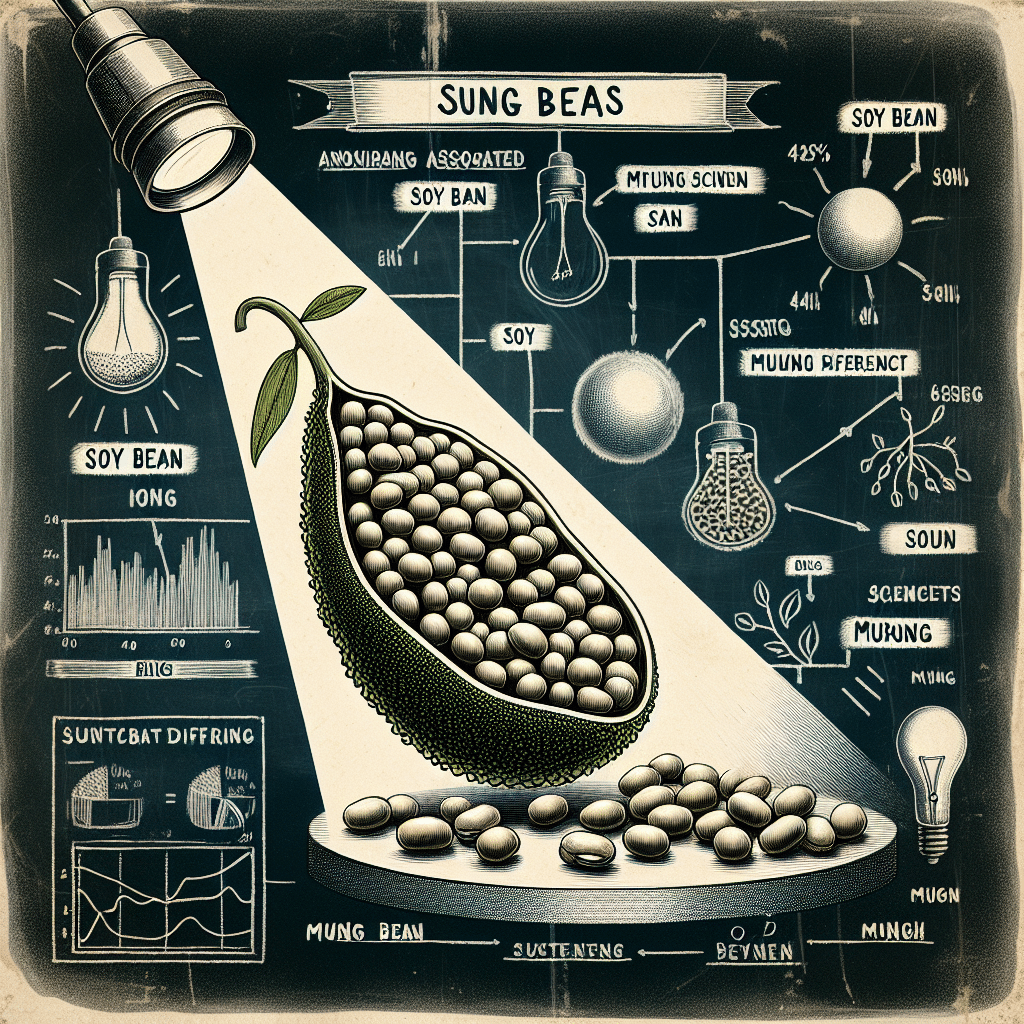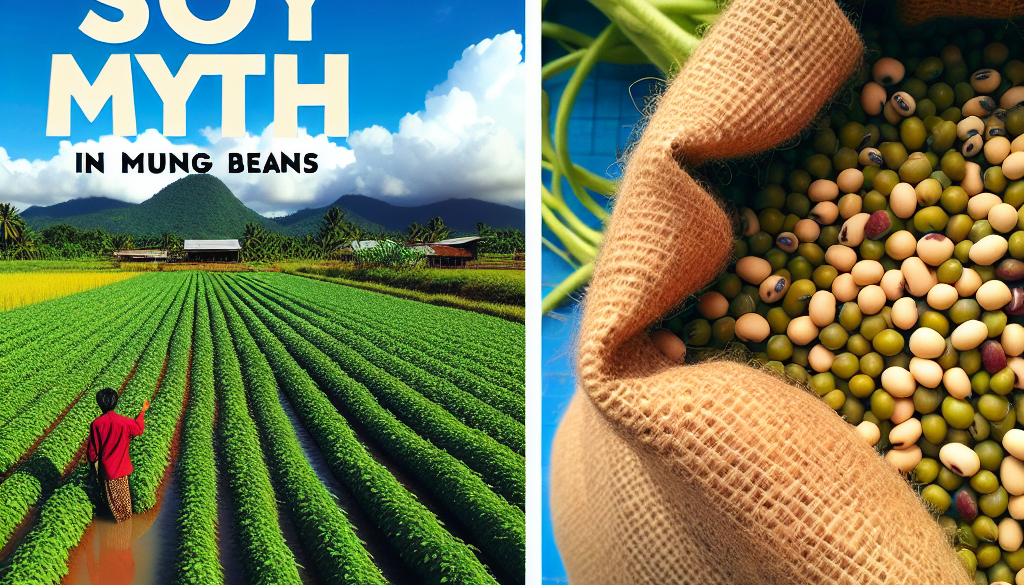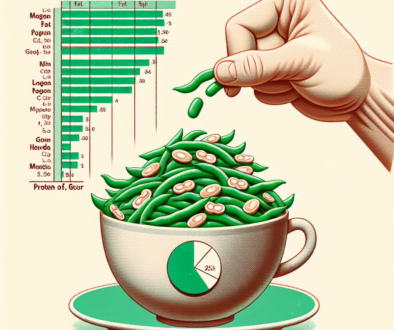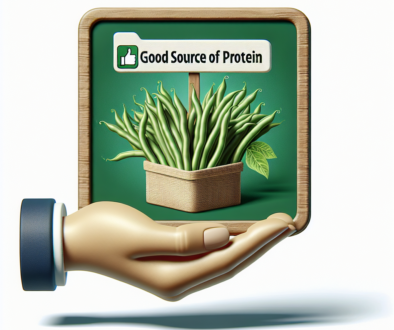Unveiling the Soy Myth in Mung Beans
-
Table of Contents
- Debunking the Soy Myth in Mung Beans: A Comprehensive Analysis
- Understanding Mung Beans: A Nutritional Powerhouse
- The Soy Myth: Clarifying Misconceptions
- Environmental Impact: Mung Beans vs. Soy
- Utilizing Mung Beans in Culinary Applications
- Case Studies and Statistics: The Rise of Mung Beans
- Conclusion: Embracing Mung Beans as a Viable Alternative to Soy
- Discover ETprotein’s High-Quality Mung Bean Protein Products
Debunking the Soy Myth in Mung Beans: A Comprehensive Analysis

When it comes to plant-based proteins, soy has long been the reigning champion in the Western world. However, as consumers become more health-conscious and environmentally aware, alternative protein sources are gaining traction. Among these, mung beans have emerged as a nutritious and sustainable option, often overshadowed by the popularity of soy. This article aims to unveil the myths surrounding soy in the context of mung beans, highlighting the latter’s health benefits, environmental impact, and versatility.
Understanding Mung Beans: A Nutritional Powerhouse
Mung beans, a staple in Asian cuisine, are small, green legumes that pack a powerful nutritional punch. They are rich in protein, fiber, vitamins, and minerals, making them an excellent addition to any diet. Unlike soybeans, mung beans are rarely associated with the controversies that often accompany soy products. Here, we explore the nutritional profile of mung beans and how they compare to soy.
- Protein Content: Mung beans contain about 24% protein, which is slightly less than soybeans at around 36%. However, mung bean protein is highly digestible and contains all nine essential amino acids, making it a complete protein source.
- Fiber: Mung beans are high in dietary fiber, which aids in digestion and helps maintain a healthy gut microbiome.
- Vitamins and Minerals: These legumes are rich in vitamins such as B-complex vitamins and minerals like potassium, magnesium, and iron.
- Antioxidants: Mung beans contain antioxidants that help combat oxidative stress and reduce inflammation in the body.
The Soy Myth: Clarifying Misconceptions
Soy has been at the center of several health debates, with concerns ranging from hormone disruption due to phytoestrogens to genetically modified organisms (GMO) prevalence. It’s essential to separate fact from fiction to understand the role of soy in our diets and how mung beans can serve as an alternative.
- Phytoestrogens: Soy contains isoflavones, a type of phytoestrogen that can mimic estrogen in the body. While some fear this could lead to hormonal imbalances, research shows that moderate consumption is safe for most people.
- GMOs: A significant portion of soy grown worldwide is genetically modified, raising concerns about long-term health effects. Mung beans are typically non-GMO, offering a more natural protein source.
- Allergies: Soy is one of the eight major food allergens. Mung beans, on the other hand, are less allergenic, making them suitable for those with soy allergies.
Environmental Impact: Mung Beans vs. Soy
The sustainability of our food choices is becoming increasingly important. Soy production has been linked to deforestation and habitat destruction, particularly in the Amazon rainforest. Mung beans, however, have a lower environmental footprint for several reasons:
- Water Usage: Mung beans require less water to grow compared to soybeans, making them a more drought-resistant crop.
- Soil Health: Mung beans can improve soil health by fixing nitrogen, reducing the need for chemical fertilizers.
- Land Use: They can be grown in a variety of climates and soil types, often as a rotational crop, which helps prevent land degradation.
Utilizing Mung Beans in Culinary Applications
Mung beans are incredibly versatile in the kitchen. They can be used whole, split, or ground into flour, making them suitable for a wide range of dishes. Here are some examples of how mung beans can be incorporated into meals:
- Sprouted Mung Beans: Often used in salads, sandwiches, and stir-fries for their crunchy texture and fresh flavor.
- Mung Bean Soup: A hearty and nutritious dish popular in many Asian countries.
- Mung Bean Desserts: In Asian cuisine, mung beans are commonly used in sweet treats like mooncakes and pastes.
- Plant-Based Meat Alternatives: Mung bean protein can be used to create vegan meat substitutes, offering a soy-free option for those looking to reduce their meat consumption.
Case Studies and Statistics: The Rise of Mung Beans
Several case studies and market analyses highlight the growing popularity of mung beans as a sustainable protein source. For instance, companies like Beyond Meat have started using mung bean protein in their products to diversify their protein sources and cater to consumers seeking soy-free options. Statistics show that the global mung bean market is expected to grow, driven by increasing demand for plant-based proteins and health-conscious consumers.
Conclusion: Embracing Mung Beans as a Viable Alternative to Soy
In conclusion, mung beans offer a nutritious, sustainable, and versatile alternative to soybeans. By debunking the myths surrounding soy and highlighting the benefits of mung beans, consumers can make informed decisions about their protein sources. Whether for health reasons, environmental concerns, or culinary exploration, mung beans are worth considering in any diet.
Discover ETprotein’s High-Quality Mung Bean Protein Products
If you’re looking to incorporate mung bean protein into your diet or product line, ETprotein offers a range of top-tier protein products derived from mung beans. Their commitment to quality, non-GMO, and allergen-free proteins ensures that you receive the best plant-based protein options available. Explore ETprotein’s offerings to find the perfect fit for your nutritional needs.
About ETprotein:
ETprotein, a reputable protein Chinese factory manufacturer and supplier, is renowned for producing, stocking, exporting, and delivering the highest quality organic bulk vegan protein and plant proteins. They include Organic rice protein, clear rice protein, pea protein, clear pea protein, pumpkin seed protein, sunflower seed protein, mung bean protein, etc. Their offerings, characterized by a neutral taste, non-GMO, allergen-free attributes, cater to a diverse range of industries. They serve nutraceutical, pharmaceutical, cosmeceutical, veterinary, as well as food and beverage finished product distributors, traders, and manufacturers across Europe, USA, Canada, Australia, Thailand, Japan, Korea, Brazil, and Chile, among others.
ETprotein specialization includes exporting and delivering tailor-made protein powder and finished nutritional supplements. Their extensive product range covers sectors like Food and Beverage, Sports Nutrition, Weight Management, Dietary Supplements, Health and Wellness Products, and Infant Formula, ensuring comprehensive solutions to meet all your protein needs.
As a trusted company by leading global food and beverage brands and Fortune 500 companies, ETprotein reinforces China’s reputation in the global arena. For more information or to sample their products, please contact them and email sales(at)ETprotein.com today.












